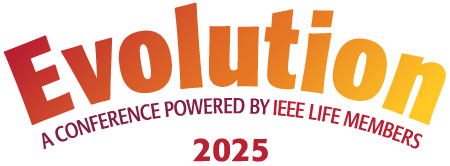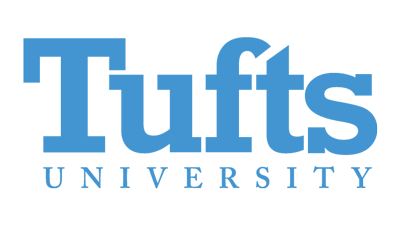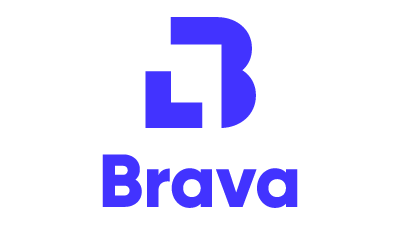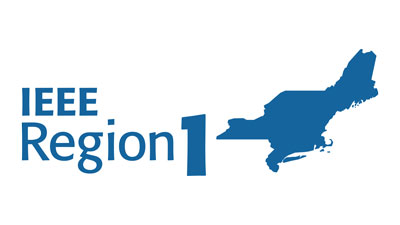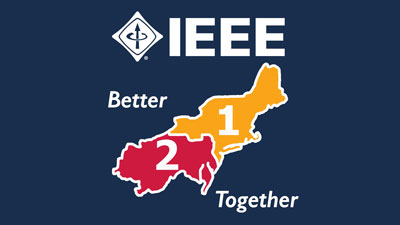Overview
The 2025 IEEE Life Members Evolution Conference invites submissions of original research papers, reviews, and case studies from IEEE members and other professionals for its Technical Program. The conference technical program will promote collaboration and share advancements in technology products, services, and processes developed for or directed at an aging population.
Topics of Interest for Submissions:
- Technological Innovations: Advances in electrical and electronics engineering, Sustainable energy solutions, Green technologies and systems, Internet of things (IoT)
- Computing and Informatics: Generative artificial intelligence and machine learning, Cybersecurity and cybercrime, Cloud computing
- Industry Applications: Healthcare and telehealth, Biomedical Engineering, Telecommunications, Autonomous systems and robotics, AgeTech, Aging, and Longevity
- Professional Development: Engineering education, Historical perspectives of technology, Ethical implications, Technology and society
Accepted Papers
Submission Guidelines
Topics will be prioritized to match and should align with the conference goals and the audience demographic. Authors should submit a digest of a maximum of 5 pages, including references, in single-column format for peer review by the technical program committee.
Authors with accepted digests will be invited to present their work at the conference. These authors should submit a complete paper of a maximum length of 8 pages in IEEE Conference Paper format (double-column, etc.). Author submissions, both written submissions and verbal presentations, must meet the IEEE Life Members Conference and IEEE submission policies. Submission and Peer Review Policies – IEEE Author Center Journals. Authors who have completed their presentation requirements will have their papers submitted to IEEE Xplore for publication.
PDF eXpress Instructions
Authors of an accepted digest are required to prepare a full-length 7-page (preferred) to 8-page maximum, manuscript in the IEEE two-column format. Manuscript files must be in unsecured PDF file format with all fonts embedded. Paper size is to be US letter (8.5 inches × 11 inches) and not international A4 size.To ensure your paper is IEEE Xplore compliant, please use IEEE PDF eXpress (insert link to PDF here).
All presenting authors are required to register no later than March 31 in order to participate and attend the conference. Failure to pre-register may result in forfeiting your time in the program and removal of your work from the schedule and proceedings. Papers not presented in person will not be submitted to the IEEE Xplore digital library.
Please upload your final manuscript here and complete the required IEEE copyright form no later than Sunday, April 21, 2025.
Important Dates
Details for paper submissions will be provided on the conference website when available.
Contact Information
For more details regarding technical submissions, contact Dr. Jerry Hudgins, Technical Program Chair.
